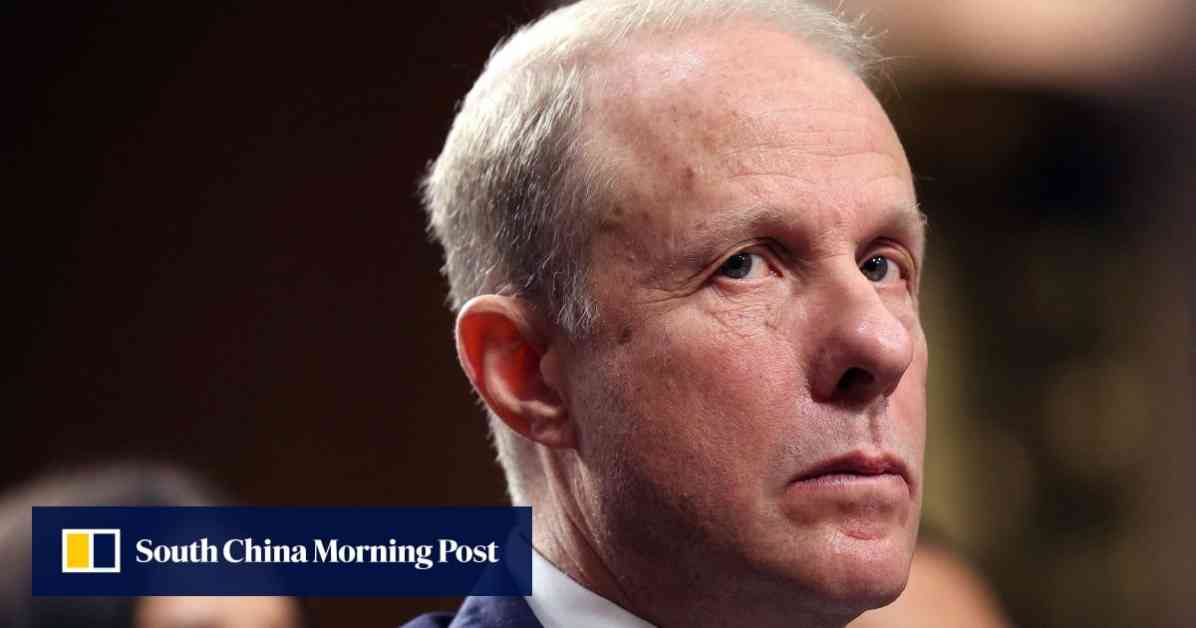At a recent Senate Armed Services Committee hearing, Stephen Feinberg, the nominee for the position of US Deputy Defense Secretary, emphasized the urgent need for increased efficiencies in the defense budget to counter the growing threat posed by China. Feinberg, a billionaire investor, highlighted the importance of leveraging private sector expertise to ramp up advanced technology development and ensure that the US military remains at the forefront of technological innovation.
During his confirmation hearing in December, Feinberg outlined his strategy to align more closely with private sector practices in order to tackle China’s expanding military capabilities. He stressed the importance of streamlining processes at the Pentagon to achieve greater financial accountability and efficiency. By implementing cuts and encouraging competition, Feinberg aims to improve the defense acquisition process and enable the US military to access cutting-edge technology essential for national security.
Feinberg expressed concerns about the current “shortages” in advanced technologies required to outpace China in the global arms race. He identified key areas such as shipbuilding, aircraft development, nuclear modernization, cyber defense, hypersonics, counterspace capabilities, and counter-drone platforms as critical areas that demand immediate attention and investment.
Challenges and Opportunities in Defense Innovation
As the US faces mounting pressure from China’s rapid military advancements, there is a pressing need for innovation and strategic investments in defense technologies. Feinberg’s proposal to involve the private sector in defense initiatives reflects a shift towards a more collaborative and efficient approach to national security. By harnessing the expertise and resources of private industry leaders, the US can accelerate the development and deployment of cutting-edge technologies critical for maintaining military superiority.
Experts in defense policy and technology have lauded Feinberg’s emphasis on efficiency and accountability within the defense budget. By leveraging private equity principles to drive cost-saving measures and promote competition, Feinberg’s approach could lead to a more agile and responsive defense acquisition process. This collaborative effort between the public and private sectors could also foster innovation and drive advancements in key defense areas, ensuring that the US remains at the forefront of military technology.
Strategic Priorities for National Security
Feinberg’s focus on prioritizing advanced technologies such as hypersonics, cyber defense, and counterspace capabilities underscores the evolving nature of modern warfare and the need for adaptive defense strategies. As emerging threats continue to challenge traditional defense paradigms, investing in cutting-edge technologies becomes imperative for safeguarding national interests. By identifying and addressing critical gaps in defense capabilities, the US can bolster its resilience against evolving threats and maintain a strategic advantage in an increasingly complex security landscape.
In conclusion, Stephen Feinberg’s nomination for the role of US Deputy Defense Secretary signals a renewed commitment to strengthening national security through innovation and efficiency. By harnessing the expertise of the private sector and prioritizing key defense technologies, Feinberg aims to enhance the US military’s capabilities and readiness in the face of growing challenges posed by China and other adversaries. As the US navigates a rapidly changing security environment, strategic investments in advanced technologies and collaborative partnerships will be essential to safeguarding the nation’s interests and maintaining a position of strength on the global stage.



























